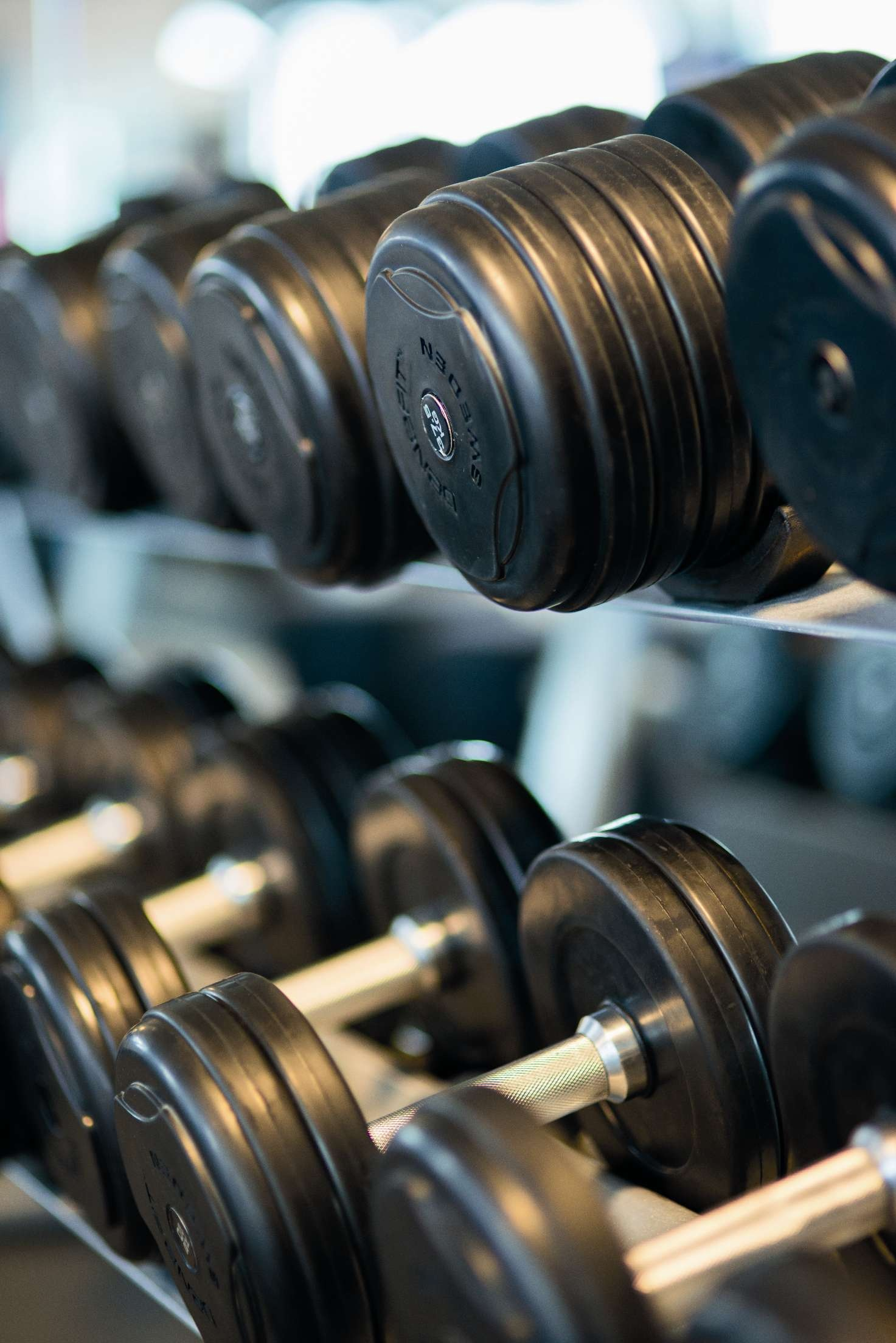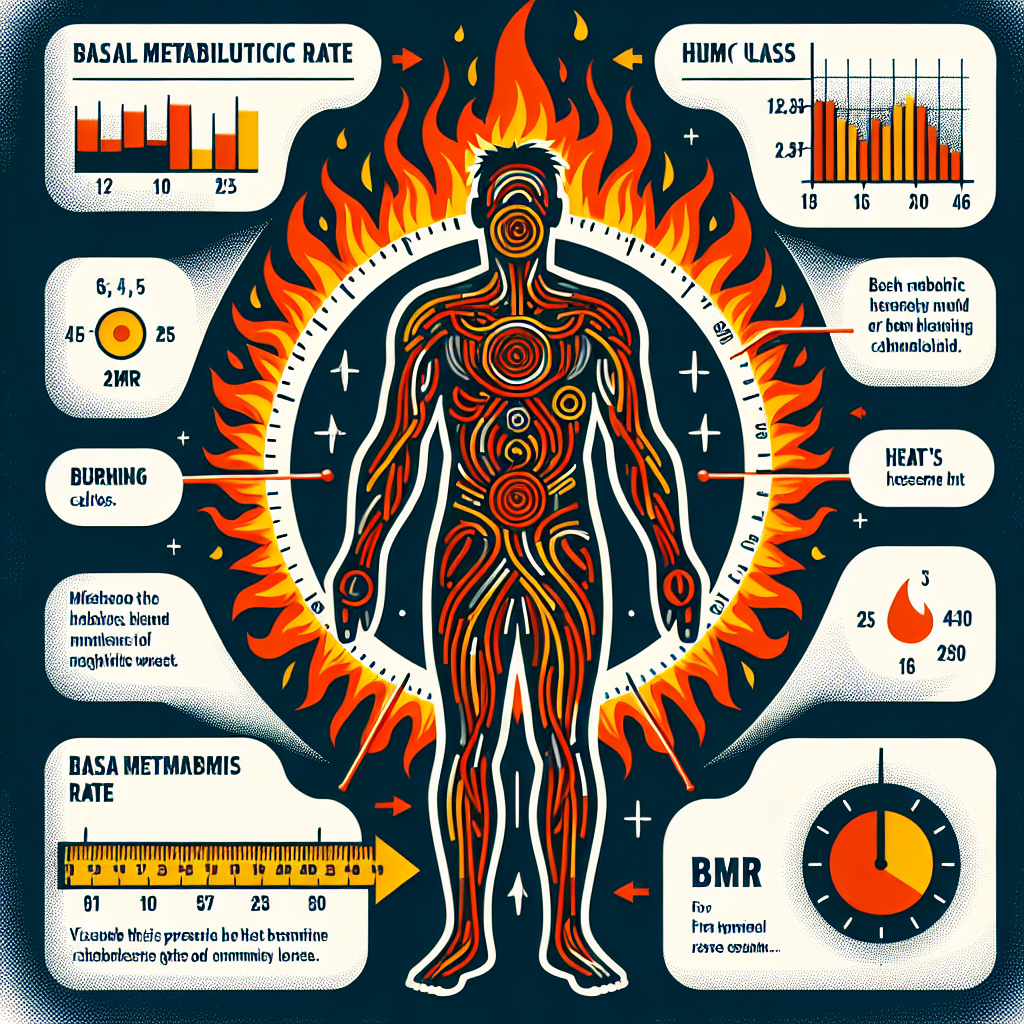Understanding the Role of BMR in Weight Loss
In the hectic pursuit of rapid weight loss, you may have heard about BMR and been left bewildered as to what it actually means. This article, “Understanding the Role of BMR in Weight Loss,” aims to demystify BMR for you, revealing its essential role in shedding those undesirable pounds. Whether you’re eager to shed weight fast or steadily, understanding your own body’s Basal Metabolic Rate (BMR) is a crucial component of any successful weight loss journey. Ready to discover its impact on your weight-loss experience? Grab a comfortable seat and delve into one of the wonderful hidden dynamics of weight loss science.

Understanding BMR
When you’re on a weight loss mission or aiming for better health management, understanding your body’s basic metabolic functions is essential. One of the vital elements to grasp is your Basal Metabolic Rate (BMR).
Basics of BMR
BMR refers to the amount of energy or calories your body needs to maintain essential bodily functions while at rest. These functions include breathing, circulating blood, regulating body temperature, cell growth, and more. It’s the minimum calorie requirement necessary for your body to survive in the absence of any work.
Calculation of BMR
Your BMR is influenced by several factors including your age, weight, height, gender, and genetics. While there are various equations to calculate BMR, the most widely used method is the Harris-Benedict Equation. These formulas take into account all the influencing factors and give a rough estimate of your BMR.
Role of BMR in the Body
BMR plays a significant role in body functioning. It accounts for approximately 60-75% of your total daily energy expenditure. This means, regardless of your daily activity, majority of your calorie burn takes place during this restful state.
Methods to Measure BMR
While using BMR calculators available online provide a quick way to estimate your BMR, they may not always be accurate. The most accurate ways to measure BMR is through a resting metabolic rate test or a doubly labeled water test. However, these methods are less accessible and more expensive than online calculators.
The Correlation Between BMR and Weight Loss
Understanding BMR provides a fundamental knowledge of how our body uses energy. This knowledge can then be applied to individual weight loss strategies.
BMR and Caloric Intake
BMR indicates the number of calories you’d burn if you were inactive for 24 hours. It provides a minimum baseline for how many calories you need to consume on a daily basis. Consuming less than your BMR can negatively impact your health and slow down your metabolism.
BMR in Burned Calories during Activity
Your BMR does not include the calories you burn from regular daily activities or exercise. This is calculated separately and added to your BMR to get your total energy consumption. So, the more you move, the more calories you burn, which can help in weight loss.
Resting Metabolic Rate Vs BMR
BMR is often confused with Resting Metabolic Rate (RMR). While they are related, RMR is usually a bit higher than BMR because it includes energy expenditure for basic activities, whereas BMR strictly measures energy expenditure at rest.

BMR and Diet
Your diet can have a significant effect on your BMR. Knowing this can help you optimize your meal plans for metabolic efficiency.
Impact of Diet on BMR
The types of food and nutrients you put into your body can affect how it uses energy. Consuming too few calories can decrease your BMR and stall weight loss, as your body goes into ‘starvation mode’ and conserves energy.
Controlling BMR through Diet
There are various ways you can alter your diet to influence your BMR. Consuming protein-rich foods can boost your BMR by promoting muscle growth. Similarly, staying well-hydrated can aid metabolic efficiency.
BMR Enhancing Foods
Certain foods like green tea, spicy foods, and coffee are known to temporarily increase your BMR. Incorporating these into your daily diet can result in a small, but significant boost to your metabolism.
How Exercise Affects BMR
exercise plays a crucial role in increasing your overall energy expenditure and can even help boost your BMR.
Exercise Effect on BMR
Regular physical activity increases muscle mass. Since muscle burns more calories than fat, having more muscle causes an increase in BMR.
Choosing Exercise to Improve BMR
While all exercise is beneficial, strength training and high-intensity interval training (HIIT) are particularly effective for improving BMR as they promote muscle growth and cause a post-workout ‘burn effect’.
After Burn Effect and BMR
This ‘after burn effect’, also known as excess post-exercise oxygen consumption (EPOC), results in increased calorie burn for hours after the workout, thus potentially increasing BMR.

Differences Between BMR and BMI
Both BMR and Body Mass Index (BMI) play key roles in health and weight management, but they measure different aspects of your health.
Underlying concepts of BMR and BMI
While BMR calculates the energy usage at rest, BMI is a measure of body weight based on height. So BMR reflects metabolic health, while BMI gives context to your weight status.
Measurement of BMR and BMI
BMR is calculated using a variety of formulas taking into account weight, height, age, and gender. On the other hand, BMI is calculated by dividing one’s weight in kilograms by the square of height in meters.
Importance of BMR and BMI in Weight Management
Both indices play crucial roles in designing a weight management plan. Your BMR gives insight into how many calories you need to keep your body functioning, while your BMI identifies whether you’re underweight, overweight, or at a healthy weight, directing your weight management goals.
BMR in Different Demographics
BMR is not the same for everyone and varies among different demographics.
BMR in men vs women
Men generally have a higher BMR than women, largely because they tend to have more muscle mass.
BMR in different age groups
As we grow older, our BMR naturally decreases. This decline is due to a loss of muscle tissue and lower physical activity levels.
BMR Profiles in Various Ethnicities
Studies suggest that different ethnic groups may have slightly different BMRs, but these differences are not significantly influential and can be resolved through proper weight management and lifestyle practices.

Importance of Understanding BMR in Weight Loss
Understanding your BMR plays a critical role in designing effective weight loss or maintenance programs.
Role of BMR in Weight Loss Programs
Knowing your BMR can guide you how much you should eat and exercise to create an energy deficit, which is key for weight loss. It’s helpful to understand that if your energy intake is less than your total energy expenditure (including BMR), you will lose weight.
BMR in Maintenance of Healthy Weight
Understanding your BMR can also help maintain a healthy weight once you’ve reached your goal. By ensuring your caloric intake matches your total energy expenditure, you can prevent weight regain.
Role of BMR in Preventing Weight Rebound
A deep understanding of BMR can help prevent weight rebound or yo-yo dieting. Even after losing weight, you need to keep your BMR in focus to maintain the newer weight and avoid returning to previous unhealthy patterns.
Common Misconceptions about BMR
There are several myths and misconceptions surrounding BMR that need clarification.
Myths about ‘Starvation Mode’
The widely believed misconception that eating too few calories will send your body into ‘starvation mode’ and slow your BMR is partially true. However, this doesn’t mean that extreme calorie restriction is healthy or effective for weight loss.
Misunderstanding about BMR and Meals Frequency
Another widespread myth is that eating more frequently boosts your metabolism. While eating regular meals prevents extreme hunger and overeating, meal frequency does not significantly affect your BMR.
False Beliefs about BMR and Crash Diets
Similarly, many believe that crash diets or extreme calorie restrictions increase BMR and promote weight loss. In reality, drastic calorie reduction can lead to muscle loss, which can in turn decrease BMR and slow down weight loss.

Effect of Weight Loss on BMR
Significant weight loss effects BMR, which sometimes can make the weight loss journey challenging.
Does Losing Weight Reduce BMR
Yes, losing weight can reduce your BMR. This is because your body needs less energy to maintain a smaller body size. This is one of the reasons why weight loss often slows down after initial success.
Effects of Rapid Weight Loss on BMR
Rapid weight loss often results in a more significant decrease in BMR. This sharp decline may stall your weight loss progress and make it easier to regain weight.
Managing BMR during Weight Loss
Maintaining a healthy diet and engaging in regular physical activity can help manage your BMR during weight loss. Strength training can be particularly helpful as it increases muscle mass and thereby, BMR.
Tips to Increase BMR
There are several strategic ways to boost your BMR and make your body more efficient at burning calories.
Incorporating Physical Activity to Boost BMR
As previously mentioned, exercise, specifically strength training and high-intensity interval training, are highly effective in increasing BMR.
Nutrition to Increase BMR
Incorporating a diet high in protein and staying well-hydrated can keep your BMR running at top speed. Certain foods, such as green tea and coffee, can also give a slight boost to your metabolism.
Healthy Habits to Maintain High BMR
Other than diet and exercise, maintaining healthy sleep habits, controlling stress, and maintaining a positive mental attitude can all contribute to an optimum BMR.
Understanding and taking into account your BMR can make your weight loss journey more effective and purpose-driven. Remember, every person’s BMR is unique, and there’s no one-size-fits-all solution in this process. So, approach your goals with patience and persistence, and you’ll find the best path for your unique metabolic makeup.

